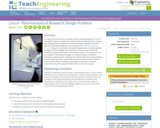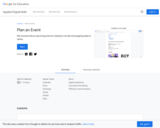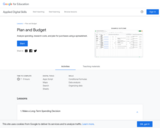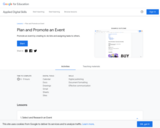
216 Results


In this video adapted from NOVA scienceNOW, find out about the discovery of a new building material, the carbon nanotube, whose physical properties could theoretically enable the creation of a 22,000-mile elevator to space. [4:29]
- Subject:
- Mathematics
- Science
- Material Type:
- Audio/Video
- Provider:
- PBS LearningMedia
- Date Added:
- 12/01/2022

This link has many tools to help understand the revolutionary sciences and discoveries in genetics.
- Subject:
- Mathematics
- Science
- Material Type:
- Reading
- Provider:
- National Institutes of Health
- Date Added:
- 12/01/2023

Students doing research about lions will find this site very helpful. Video and audio clips, photographs, a map, and fun facts will enhance research projects.
- Subject:
- Science
- Material Type:
- Interactive
- Provider:
- National Geographic Society
- Provider Set:
- National Geographic Kids
- Date Added:
- 10/03/2023

This multimedia article reveals the natural history of otters. The facts, maps, and video and audio clips are perfect resources for research.
- Subject:
- Science
- Material Type:
- Interactive
- Provider:
- National Geographic Society
- Provider Set:
- National Geographic Kids
- Date Added:
- 10/03/2023

As scientific researchers explore cave formations, learn how science and engineering have resulted in advancements that have changed our lives dramatically. Now more than ever, the boundaries between science, technology, and engineering blur together to extend our knowledge even further. [5:40]
- Subject:
- Mathematics
- Science
- Material Type:
- Audio/Video
- Provider:
- National Science Foundation
- Date Added:
- 11/05/2022

An intensive look at sea ice, its characteristics, how it is formed, where it occurs, why it is so important, scientific research, its impact on early explorers' voyages, and so on. Antarctic and Arctic sea ice are compared for similarities and differences.
- Subject:
- Science
- Material Type:
- Reading
- Provider:
- National Snow and Ice Data Center
- Date Added:
- 12/01/2023

This collection, which includes videos, blog articles, student handouts, lesson plans, and tip sheets for families, helps students identify, analyze, and investigate the news and information they get from online sources. Media literacy is an essential skill for all students across a range of subjects, from Science to Social Studies to English Language Arts. The collection is also useful for a behind-the-scenes look at journalism and how information is researched, shaped, and reported. Check out the resources in the collection topics.
- Subject:
- Arts
- English Language Arts
- Material Type:
- Module
- Provider:
- PBS LearningMedia
- Date Added:
- 10/11/2021

Explore the dimensions of America's rich history by taking a detailed look at objects from our past. Examine stories, important moments, and the evolution of the American people via primary documents, photos, and other artifacts.
- Subject:
- Social Studies
- Material Type:
- Reading
- Date Added:
- 12/01/2023

Through this lesson, students can examine the life and interests of Ernest Hemingway. They will research, write and perform a mock interview between Hemingway and a TV news anchor. Although this lesson was created to be used with the PBS program, "Hemingway Adventures," use of the program is not essential to the lesson.
- Subject:
- Arts
- English Language Arts
- Material Type:
- Lesson Plan
- Provider:
- PBS
- Date Added:
- 10/03/2023

Construct a device to measure the height of a bounced ball, then compare the bouncing heights of various types of balls. Record the results on a chart.
- Subject:
- Mathematics
- Science
- Material Type:
- Lesson Plan
- Provider:
- PBS
- Date Added:
- 12/01/2023

This online writing assistance offers help in the writing process, grammar and mechanics, usage, and four different types of essays, as well as help on deciding what and how to document.
- Subject:
- Arts
- English Language Arts
- Material Type:
- Reading
- Provider:
- Boise State University
- Date Added:
- 12/01/2023

Through this lesson and its associated activity, students explore the role of biomedical engineers working for pharmaceutical companies. First, students gain background knowledge about what biomedical engineers do, how to become a biomedical engineer, and the steps of the engineering design process. The goal is to introduce biomedical engineering as medical problem solving as well as highlight the importance of maintaining normal body chemistry. Students participate in the research phase of the design process as it relates to improving the design of a new prescription medication. During the research phase, engineers learn about topics by reading scholarly articles written by others, and students experience this process. Students draw on their research findings to participate in discussion and draw conclusions about the impact of medications on the human body.
- Subject:
- Chemistry
- Engineering
- Life Science
- Science
- Material Type:
- Lesson Plan
- Provider:
- TeachEngineering
- Provider Set:
- TeachEngineering
- Author:
- Angela D. Kolonich
- Date Added:
- 09/18/2014

Plan and promote an upcoming event by creating to-do lists and assigning tasks to others. Time to complete: 6-9 hours
- Subject:
- 21st Century Skills
- Business
- Business and Communication
- Technology
- Material Type:
- Lesson
- Lesson Plan
- Provider:
- Provider Set:
- Applied Digital Skills
- Date Added:
- 05/03/2022

Analyze spending, research costs, and plan for purchases using a spreadsheet. Time to complete: 7-9 hours
- Subject:
- Financial Literacy
- Technology
- Material Type:
- Lesson
- Lesson Plan
- Provider:
- Provider Set:
- Applied Digital Skills
- Date Added:
- 05/03/2022

Promote an event by creating to-do lists and assigning tasks to others. Time to complete: 6-9 hours
- Subject:
- 21st Century Skills
- Business
- Business and Communication
- Technology
- Material Type:
- Lesson
- Lesson Plan
- Provider:
- Provider Set:
- Applied Digital Skills
- Date Added:
- 05/03/2022

Psychology is designed to meet scope and sequence requirements for the single-semester introduction to psychology course. The book offers a comprehensive treatment of core concepts, grounded in both classic studies and current and emerging research. The text also includes coverage of the DSM-5 in examinations of psychological disorders. Psychology incorporates discussions that reflect the diversity within the discipline, as well as the diversity of cultures and communities across the globe.Senior Contributing AuthorsRose M. Spielman, Formerly of Quinnipiac UniversityContributing AuthorsKathryn Dumper, Bainbridge State CollegeWilliam Jenkins, Mercer UniversityArlene Lacombe, Saint Joseph's UniversityMarilyn Lovett, Livingstone CollegeMarion Perlmutter, University of Michigan
- Subject:
- Psychology
- Material Type:
- Full Course
- Provider:
- Rice University
- Provider Set:
- OpenStax College
- Date Added:
- 02/14/2014

- Subject:
- Psychology
- Material Type:
- Unit of Study
- Provider:
- Rice University
- Provider Set:
- OpenStax College
